Description
ABSTRACT
Taxability of Airlines’ Loyalty Programs in Nigeria
Dr. Olumide Obayemi*
In Nigeria, as in all parts of the world, most major airlines offer frequent flyer programs under which passengers accumulate miles for each flight. Individuals may also earn frequent flyer miles or other promotional benefits. These promotional benefits may generally be exchanged for upgraded seating, free travel, discounted travel, travel-related services, or other services or benefits. Therefore, questions have been raised concerning the taxability of frequent flyer miles and/or other promotional items that are received because of business travel and used for personal purposes. The technical and administrative issues relating to these benefits on which no official guidance has been provided are enormous. Consequently, this Paper examines the rules that regulate the recognition of gains, profits and income under the Personal Income Tax Act (PITA), and then considers the taxability of awards from frequent flyer programs. The paper further considers contemporary tax rules on treatment of frequent flyer awards existing in western nations to argue that such gains and profits should be taxed by Nigerian tax authorities, in line with the National Tax Policy of 2012.
INTRODUCTION
The subject matter of income, gains and/or profits accruing from awards resulting from frequent flyer programs (FFP), must involve the examination of the principles that guide the determination of chargeable income or profits in Nigeria in accordance with the provisions of the Personal Income Tax Act (with the 2011 Amendments) (“PITA”).1 The implementation of the PITA and other applicable laws must also conform to judicial interpretations of tax statutes and this fact makes the decided cases important in the determination of applicability of the relevant provisions of the law in taxation and also explains the prominence given to the cases.2 It is settled law that in the interpretation of statutes effect must be given to their ordinary meaning where the text is clear, as laid down in Attorney General of Ondo State v Attorney General of Ekiti State,3 where Justice Kutigi, JSC., held at page 756 that:
It is certainly a cardinal principle of interpretation that where in their ordinary meaning the provisions are clear and unambiguous, effect must be given to them without resorting to any aid internal or external. It is the duty of the court to interpret the words of the lawmaker as used. Those words may be ambiguous, but even if they are, the power and duty of the court to travel outside them on a voyage of discovery are strictly limited (See for example And St. Mellons R.D.C. v Newport Corporation (1951) 2 All NLR 839, London Transport Executive v Betts (1959) AC 231, Attorney General of Bendel State v Attorney General of the Federation Ors (1981) 10 SC 1, (1981) 12 NSCC 314)
* LL.M, BL, SJD. Admitted to the Bars of the State of California, USA and Nigeria. Senior Lecturer, Department of Business Law, Lagos State University and Legal Practitioner, Ajumogobia & Okeke, Lagos
- CAP P8, Laws of the Federation of Nigeria, 2004 (with the 2011 Amendments) (“PITA”)
- Joseph Ajibola Arogundade, Nigerian Income Tax & Its International Dimension: An In-Depth Analysis of Incomes From Local and Cross-Border Transactions in Nigeria (Spectrum Books Limited, Ibadan 2005) 119. (“Arogundade”)
- (2001) 17 NWLR (Pt 743) 706

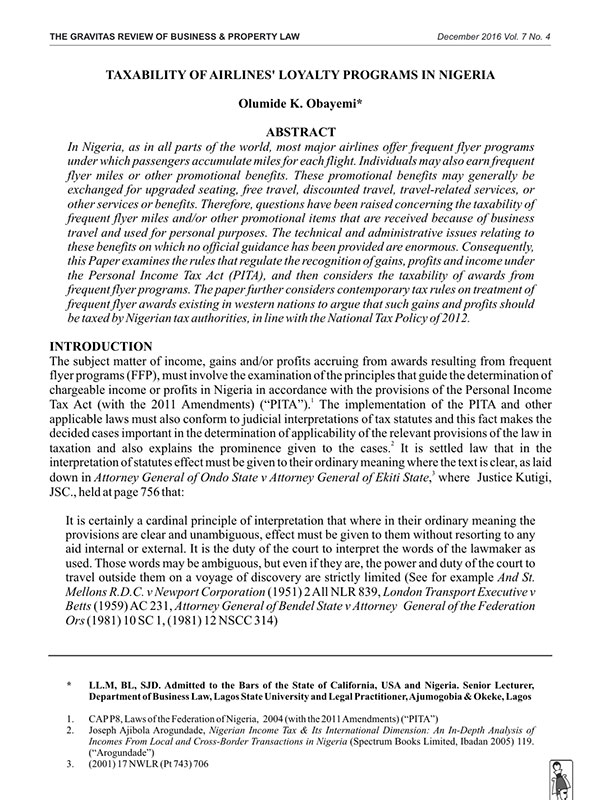
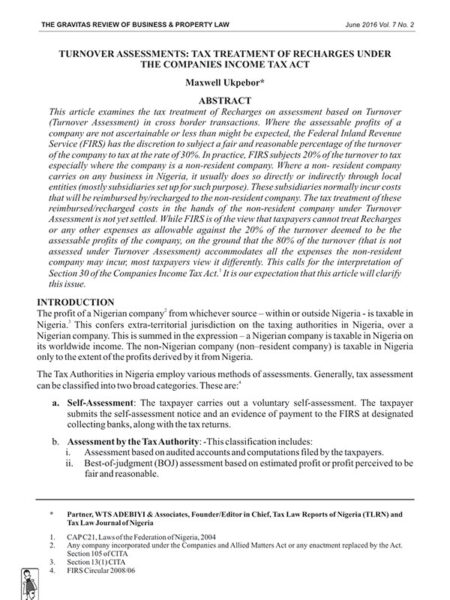
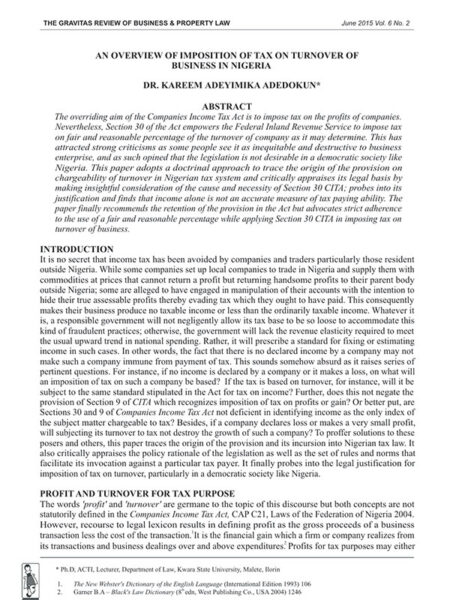
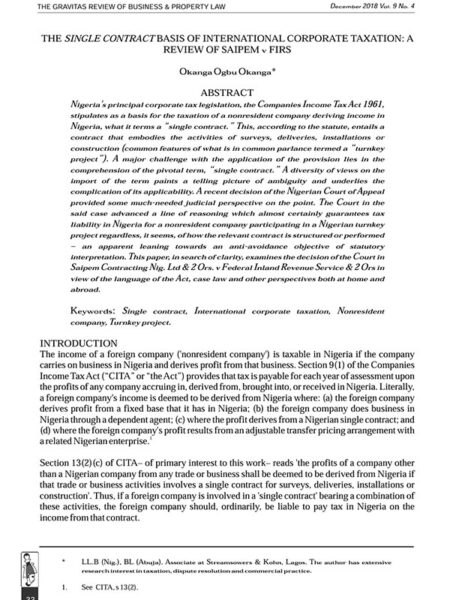
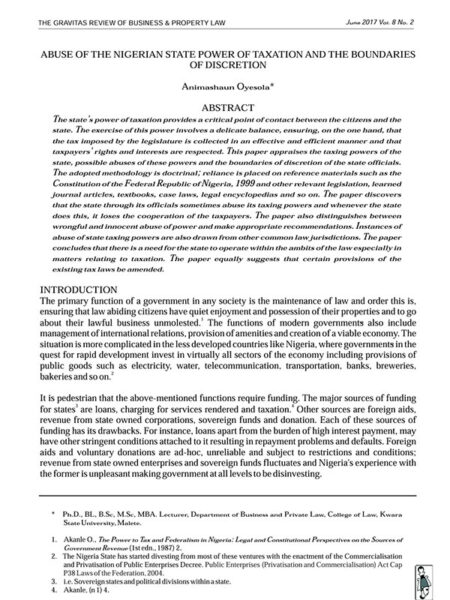


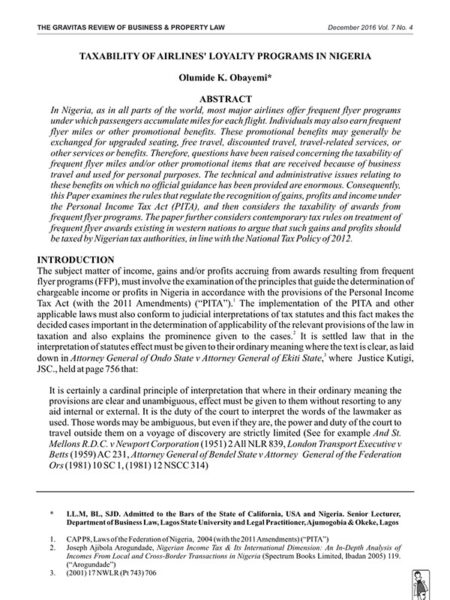
Reviews
There are no reviews yet.